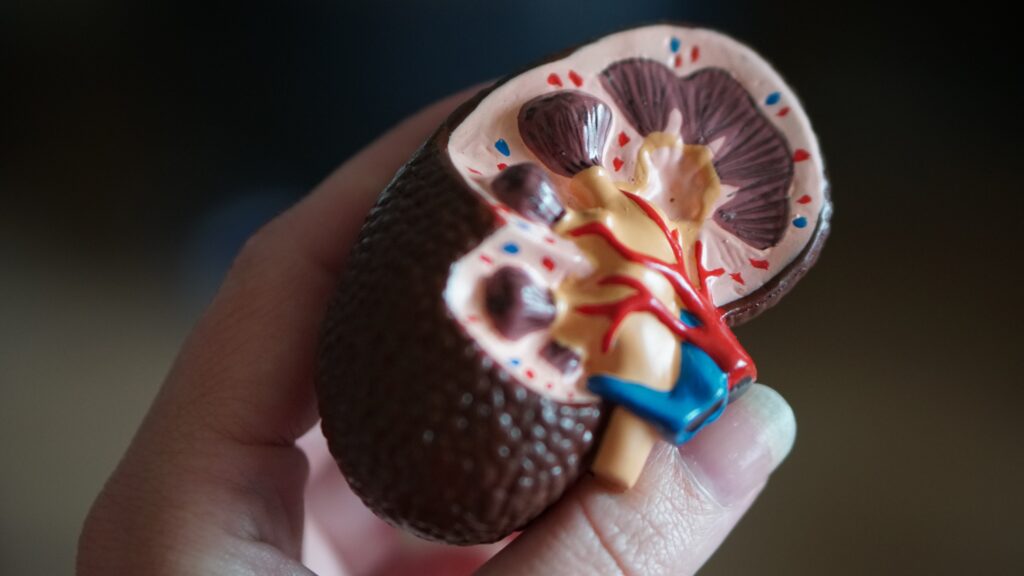By Dr AZEEM AHAMED MD DM
NEPHROLOGIST
Introduction
Have you ever noticed blood in your urine and wondered what it means? Don’t worry, you’re not alone.
This condition, known as hematuria, can be quite alarming, but understanding its causes, symptoms, and potential complications can help put your mind at ease.
In this blog post, we will explore the ins and outs of haematuria, shedding light on what it is, why it happens, and what you can do about it.
So let us solve the mystery surrounding the blood in urine.
What is Hematuria?
Haematuria, derived from the Greek words “haima” meaning blood and “ouron” meaning urine, refers to the presence of blood in the urine.
This condition can manifest as visible blood, giving your urine a reddish or pinkish hue, or as microscopic blood that can only be detected under a microscope during urine analysis.
The presence of blood in urine or what is known as hematuria is a common symptom with which a patient comes to the physician
In most cases, hematuria is not a cause for immediate concern, as it often resolves on its own without any specific treatment.
However, it can sometimes be an indication of an underlying medical condition that requires attention.
Therefore, it’s essential to understand the different types of haematuria and their potential causes.
This can be the early sign of a significant underlying problem and can be a cause of significant stress to the person affected.
Sites from where blood in urine can arise

Causes of blood in urine can be due to a disease in the genitourinary tract which includes
- Kidney
- Ureter
- Prostate
- Urethra
- Urinary bladder
What should you do if you have blood in urine
The patient who is having the above symptom is usually managed by a doctor specialised in kidney diseases who is called a Nephrologist.
Certain diseases of genitourinary tract especially renal stones causing hematuria also come under the care of a Urologist.
The patient would initially be screened by the general practising physician who has to refer the patient to appropriate specialist based on his or her clinical presentation.
Types of Hematuria
Different classifications of hematuria which are followed internationally
Based on whether it is visible to naked eye or not.
Macroscopic Hematuria: It is characterized by visible blood in the urine, which can vary in intensity from a light pink tinge to a dark red color.
While the presence of visible blood can be quite alarming, it’s essential to remember that it doesn’t always indicate a severe underlying condition.
In fact, even something as harmless as consuming certain foods, such as beets or blackberries, can cause your urine to appear reddish.
Microscopic Hematuria: Unlike gross haematuria, microscopic haematuria can only be detected through a urine test that analyzes the urine under a microscope.

This type of hematuria may not be visible to the naked eye, but it can still be an indication of an underlying health issue.
Microscopic hematuria is often discovered incidentally during routine check-ups or as part of a diagnostic workup for other conditions.
Based on associated symptoms
- Asymptomatic hematuria
- Symptomatic hematuria
False hematuria
There is no actual hematuria but false reports are seen.
Drugs causing false Hematuria

- Rifampicin
- Phenytoin
Vegetables causing false Hematuria
Rhubarb

Rhubarb is another food that can cause false hematuria.
Like beetroots, rhubarb contains compounds, such as anthraquinone glycosides, which can give the urine a red or pink color when consumed.
This can be mistaken for blood in the urine, leading to a false appearance of hematuria.
Beetroot

Beetroot contain a red pigment called betacyanin. When you consume beetroots, this pigment can be excreted in your urine, giving it a reddish or pinkish color.
It may be mistaken for blood, leading to a false appearance of hematuria.
It’s important to note that this discoloration is harmless and temporary, typically lasting a day or two after consuming beetroot.
Laxatives causing false Hematuria
Senna plant

Senna is a plant known for its laxative properties and is sometimes used to relieve constipation. However, the compounds in senna, particularly the anthraquinone glycosides, can also lead to false hematuria.
When these compounds are metabolized and excreted in the urine, they can give the urine a reddish or pinkish color, which might be mistaken for blood.
As with beetroot and rhubarb, the discoloration caused by senna is generally harmless and temporary. It should resolve on its own shortly after you stop using senna.
Certain endogenous pigments
- Urate
- Bile
Causes of Hematuria
Now that we understand the different types of false haematuria, let’s delve into some of the potential pathological causes behind this condition.
While some causes of hematuria are relatively harmless, others may require immediate medical attention. Let’s explore a few common causes:
Urinary Tract Infections (UTIs)
UTIs, particularly those affecting the bladder and urethra, are one of the most common causes of haematuria.
The infection can irritate and inflame the lining of the urinary tract, leading to blood in the urine.
Other symptoms of UTIs may include
- Burning sensation during urination
- Frequent urination
- Cloudy urine
Kidney Stones

The importance of this symptom of hematuria is that this can be the earliest or first symptom of common disease conditions we see in clinical practice like for example kidney stones.
The formation of kidney stones, hardened deposits of minerals and salts, can cause haematuria.
These stones can sometimes be small enough to pass through the urinary tract unnoticed, but larger stones can cause intense pain and discomfort.
If you suspect you have kidney stones, it’s crucial to seek medical attention to prevent complications.
Bladder or Kidney Infections
Infections affecting the bladder or kidneys, such as cystitis or pyelonephritis, can lead to haematuria.
These infections can cause inflammation and damage to the urinary tract, resulting in blood in the urine.
Symptoms may include
- Fever
- Pain in the lower abdomen or back
- Persistent urge to urinate
Trauma or Injury
Any trauma or injury to the urinary tract, such as a blow to the abdomen or a pelvic fracture, can cause hematuria.
In these cases, blood in the urine is often accompanied by other signs of trauma, such as
- Pain
- Bruising
- Difficulty in urination
Kidney Diseases
Certain kidney conditions can lead to hematuria.
- Glomerulonephritis
- Polycystic kidney disease
These conditions affect the filtering system of the kidneys, causing blood to leak into the urine.
Other symptoms may include
- Swollen ankles
- High blood pressure
- Fatigue
Rare cause of hematuria
Nutcracker syndrome
According to American Journal of Kidney Diseases Nutcracker syndrome is an under diagnosed cause of left-sided abdominal pain and hematuria. Other manifestations include
- Proteinuria
- Left varicocele in men
- Pelvic congestion syndrome in women
The diagnosis is made on angiography that shows compression of the LRV between the aorta and superior mesenteric artery.
Medications and Herbal Supplements
Some medications and herbal supplements can lead to haematuria as a side effect.
For example, certain blood thinners and antibiotics may cause blood to appear in the urine.
If you suspect your medication or supplement is causing hematuria, consult your healthcare provider for guidance.
When to Seek Medical Attention
Although not all cases of hematuria require immediate medical attention, there are situations when it is essential to consult a healthcare professional.
Here are some scenarios in which seeking medical attention is highly recommended:
- Severe or Recurrent Hematuria: If you experience excessive blood in your urine, or if episodes of hematuria come and go frequently, it’s crucial to seek prompt medical attention.These symptoms may be a sign of a more serious underlying condition that requires diagnosis and treatment.
- Accompanying Symptoms: If you experience additional symptoms alongside hematuria, such as abdominal pain, fever, or difficulty urinating, it’s important to consult a healthcare professional. These symptoms may indicate an infection or another medical condition that requires treatment.
- Personal or Familial Risk Factors: If you have a personal or family history of kidney or bladder conditions, or if you are at a higher risk for developing these conditions due to factors such as age or exposure to certain chemicals, it’s advisable to seek medical attention to rule out any underlying issues.
- Persistent Haematuria: If blood in your urine persists for more than a few days, it’s important to consult a healthcare professional. Persistent hematuria may be a sign of an ongoing problem that requires investigation.
Remember, it’s always better to consult a healthcare professional if you have any concerns about haematuria.
Healthcare providers have the knowledge and tools to evaluate your symptoms, provide appropriate treatment, and offer guidance moving forward.
Diagnosis and Treatment Options
When you consult a healthcare professional for hematuria, they will likely perform a series of tests to determine the cause of the condition. These tests may include:
Urine Analysis: A routine urine test can help identify the presence of blood in the urine. If blood is detected, further evaluation will be necessary to determine the cause.
According to American Journal of kidney disease analysis of freshly collected urine by dipstick followed by microscopy is the most common clinical method for detecting hematuria.
The preferred method of collection of urine is to use the second morning void specimen because it may contain the most acanthocytes
- Urine
- Ph
- White blood cells
- Red blood cells
- Protein
- Sediments
Imaging
- Scans: X-rays, ultrasounds, CT scans, or MRIs may be ordered to assess the urinary tract for any abnormalities, such as kidney stones or tumors.

- Cystoscopy: In this procedure, a thin tube with a tiny camera is inserted into the bladder to inspect the urinary tract for any signs of disease or injury.
Blood Tests
Blood tests may be performed to assess
- Kidney function
- Identify signs of infection
- Detect markers of certain medical conditions.
After diagnosing the underlying cause of haematuria, your healthcare provider will recommend appropriate treatment options.
The specific treatment will depend on the identified cause and may involve:
- Antibiotics: If hematuria is caused by a urinary tract infection or kidney infection, antibiotics may be prescribed to clear the infection and prevent complications.
- Stone Removal: If kidney stones are determined to be the cause of hematuria, various methods may be employed to help remove or break down the stones, including medications or,in some cases, surgical intervention.
- Cancer Treatment: If hematuria is linked to bladder or kidney cancer, treatment options may include surgery, radiation therapy, chemotherapy, or a combination of these approaches. The specific treatment plan will be determined by the stage and type of cancer.
- Lifestyle Modifications: Making certain lifestyle changes, such as increasing fluid intake, avoiding irritants, like caffeine and alcohol, and following a healthy diet, can help manage and prevent hematuria in some cases.
It’s essential to follow your healthcare provider’s advice and attend any recommended follow-up appointments to monitor your condition and ensure the effectiveness of the chosen treatment.
Treatment Approaches and Medical Interventions
A. Primary line of care and medical interventions for Hematuria
When it comes to treating Hematuria, doctors tries to find out the cause and then plan the treatment accordingly.
B. Breakdown of how treatments vary in accordance with different causes
If it’s a urinary tract infection, antibiotics are the way to go. If you have a large kidney stone you might need medication or shock wave therapy.
If it’s a result of a medication side effect, your doctor might change your prescription.
C. The role of lifestyle changes in managing and preventing Haematuria
Of course, we can’t talk about health without emphasizing lifestyle changes.
Drinking plenty of fluids and avoiding strenuous physical activity can help manage and even prevent certain causes of Hematuria.
Living with Hematuria: Stories and Insights
A. Personal narratives of those dealing with Hematuria
Living with Hematuria is no easy feat. It’s physically draining and emotionally challenging.
The stories of those dealing with this issue underscore the strength it takes to navigate the health care system and the courage to face their condition head-on.
B. How Hematuria impacts daily life and mental health

Beside the physical ailments accompanied by Hematuria, there is also a significant mental element as well.
Constantly worrying about your health, dealing with the symptoms, and explaining your condition can take a toll on your mental health.
C. Survival strategies and support mechanisms for those facing Hematuria
Support mechanisms and survival strategies play a vital role in overcoming the challenges brought about by Hematuria.
This might involve a
- Solid support system of friends and family

- Joining a support group
- Taking adequate measures to deal with the stress.
Facing Hematuria – The Need for Open Conversations
A. Why open discussion on Haematuria matters
Like any health condition, Hematuria isn’t something to be shoved under the rug. The more we talk about it, the less scary it seems. And the less scary it is, the more likely people are to get checked and receive the care they need. Think
B. Encouraging proactive health measures and early medical intervention
If you see blood in urine it’s essential to get this checked out immediately.
Remember, you’re not just doing this for yourself, but for all the people who need your amazingness in their lives.
C. The importance of pushing for more Hematuria research
Finally, we can’t stress enough how vital it is to invest in more research.
With more knowledge comes better diagnosis, more efficient treatments and ultimately, improved quality of life for those dealing with Haematuria.
FAQs
1, What are the first signs of Hematuria and when should you consult a Doctor?
The first sign is typically a change in urine color, ranging from pink to red or even cola-colored. Seeing a doc ASAP is the best route to go as early intervention is always key!
2, Are there any home remedies or prevention strategies for Hematuria?
While there aren’t any specific home remedies to treat Haematuria, maintaining a healthy lifestyle can go a long way in prevention. You want to stay hydrated, use medication as directed, and avoid overexertion.
3, Can Hematuria be cured or is it a chronic condition?
Hematuria isn’t a chronic condition itself, but a symptom. Once the underlying cause is treated, the Haematuria usually resolves.
4, Is Hematuria a sign of cancer or life-threatening diseases?
While Haematuria can be a symptom of kidney or bladder cancer, it’s not always the case. It could also be due to less severe conditions like urinary tract infections or kidney stones.
5, How does Hematuria affect pregnancy and fertility?
Hematuria itself doesn’t affect fertility or pregnancy, but depending on the underlying cause, it might have a potential impact.
6, How can you support someone dealing with Hematuria?
Show them you care. Be there to listen, accompany them to appointments, and provide emotional support. No gesture is too small.
7, Are there any advancements in Hematuria treatment?
There have been some advancements in terms of diagnostic tools and treatment options, like the use of novel biomarkers and less invasive surgical techniques.
Conclusion
In conclusion, hematuria, although frightening at first, can have a variety of causes, some of which require further medical attention, while others resolve on their own.
So the take home message would be if you experience any form of hematuria you would have to approach a specialist in kidney diseases for further evaluation.
Remember that the presence of blood in the urine does not always indicate a severe underlying condition, and in many cases, it can be effectively treated or managed.
By understanding the causes and potential treatment options, you can take control of your health and ensure the best possible outcome.
So, take a deep breath and reach out to your healthcare provider if you have any concerns about hematuria.
References
AMERICAN JOURNAL OF KIDNEY DISEASES
